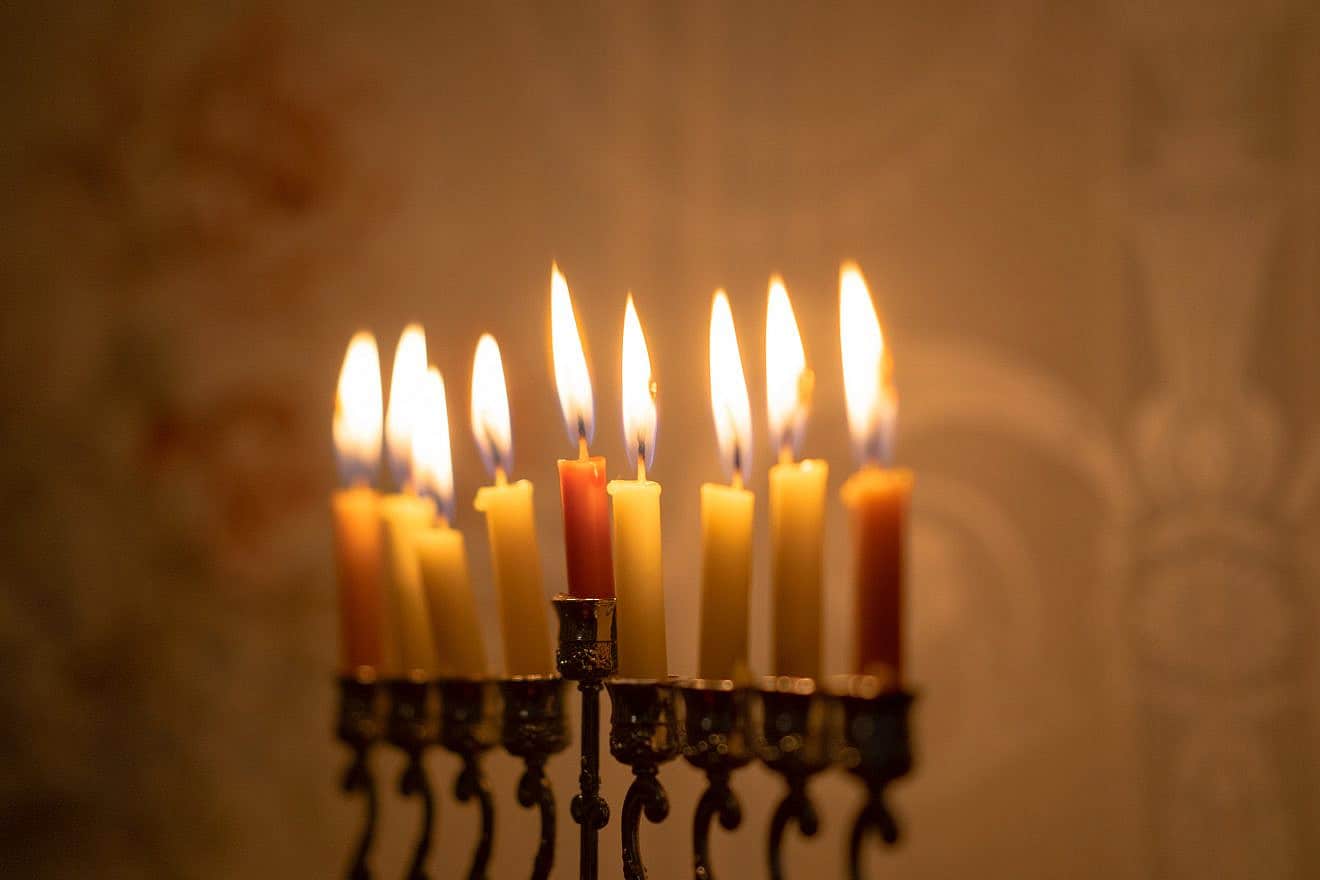This year, unlike many others, it seems like a challenge to embrace the spirit of Chanukah. The ongoing war between Israel and Hamas, worry about hostages still left in Gaza, and most palpably, here in America, the worrisome rise of antisemitism and anti-Israel rhetoric has for many, made it harder to focus on the joy and meaning of the Jewish holiday.
Yet no holiday could be more emblematic of our times and our need for finding peace. The eight-day festival is meant to commemorate the resolve and faith of the Maccabees as they struggled to protect the temple and its ner tamid (“eternal light”) from being extinguished by the Greeks. In our yearly recounting of the story, it was a miracle from God—not just human perseverance—that ensured their success.
Oftentimes, I find myself wondering what it was like for the Jews of ancient Israel as they faced the antagonism around them. What strengths did they draw upon? What memories took precedence in moments of struggle and feelings of defeat? How did they cope with living in a world that didn’t accept them or their beliefs? Chanukah celebrates its miracle, but the true story of the Maccabees also extols the triumph of the human spirit.
I think of that each year as my husband and I reminisce about what we’ve learned along the way: what we have embraced as traditions and how we have dealt with compromise when safety or circumstance has demanded it. Like many Jewish families who chose to break convention and live outside of major Jewish centers, we have experienced a range of attitudes towards Jews. Some were enlightening; others led us to be wary. Only once did we truly feel concerned about our safety.
My husband’s first teaching job after obtaining his K-12 certification in British Columbia, Canada, led us to a small Indigenous village deep in the Canadian mountains. It had never occurred to us that there might be a place in North America where some of its residents knew nothing about the modern existence of Jews, much less ever seen a hanukiyah.
But after placing the menorah in the window on the eighth night, we received a cavalcade of pick-up trucks past our front door. Word had spread quickly around the town, bringing truckloads of kids to see the lights. For 20 minutes, we listened to the “oohs and ahhs” and “Thanks, Mr. Lee!” as Lytton’s high school student body streamed past our window. The innocuous question, “What’s a Jew?” by a couple of students and their curiosity about Jewish traditions gave us hope that our next home would be just as welcoming.
But Lytton, it seemed, was an anomaly—and for a reason. We realized shortly before my husband’s teaching contract was up that many of the First Nations members recognized a common bond with us and the Jewish people: They, too, had suffered centuries of ethnic persecution. They, too, had spent generations trying to reclaim a homeland and establish their sovereignty as a people. And they, too, had been discouraged from practicing their traditions for fear of backlash.
Not all of our experiences since Lytton have been as encouraging. But of the five or so rural communities we have lived in, only one made us wary enough to decide to hide our hanukiyah and kindle it out of sight of passing traffic. It was a decision we didn’t make lightly, but in the end, carried its own potent lesson.
Our new house overlooked a street on the back side of a small ranching town in Colorado. Off-handed comments about Jews at the local school and insistence by the principal that we “should have told him we were Jews so [he] could stand up for us” made us a bit wary of our new community. A later warning to my husband by a neighbor about anti-Semitic attitudes in town cemented our alarm.
That Chanukah, we searched for a place where we could display the hanukiyah away from the front door. Our eyes lit on the window in the dining room that faced our neighbor’s house. As we placed the menorah on the sill, we discovered that the window looked onto a desk in our neighbor’s bedroom. We had never met the man, but we knew that he was elderly and kept to himself. We also knew that he was deaf, and like us, appeared uneasy with many in the surrounding community.
We blessed the candles and then went into the living room. A half-hour later when I came back, I saw the gentleman sitting at his desk, writing. He lifted his head briefly and then turned away, pretending not to see me. The candles had just finished burning.
I often wonder what his reaction was to seeing the menorah shining against his windowpane. Remembering Lytton and the children’s lives who were inspired that night years ago, I hope it gave him peace.
Standing up against bigotry comes in many forms. Oftentimes, it isn’t the force of our voice that matters but the actions we choose in spite of adversary—whether it’s to light our menorah on a street corner with the community gathered around or kindle it privately, where it can inspire reflection and hope.
As Ambassador Deborah Lipstadt, U.S. special envoy to monitor and combat antisemitism, so eloquently wrote recently: “Combating antisemitism requires a shift in perspective. … It must sprout from a positive place.” There is no better way to confront bigotry, argued Lipstadt, than “demonstrating pride in who [we] are and solidarity with others facing persecution for who they are.”
May you find your own special way to bring peace into Chanukah this year.


























